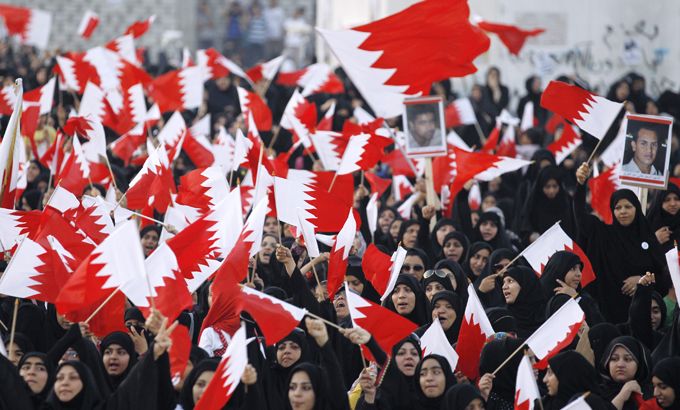
Did Bahrain expose US double standards?
As the US criticises Russia and China over Syria, we examine Washington’s reaction to Bahrain’s clampdown on protesters.
“Maintain power through consent, not coercion” was the message from Barack Obama, the US president, to Arab leaders as he laid out his vision for democracy in the Middle East two years ago in the Egyptian capital, Cairo.
But then came a wave of uprisings across the Arab world – uprisings that have left the US leader under pressure to live up to the standards he advocated.
When the tiny Gulf kingdom of Bahrain saw an eruption of anti-government protests and a violent crackdown, it became apparent that US foreign policy had glaring inconsistencies and double standards in the region.
 |
But Obama said the US did not want to “employ a cookie cutter approach” to the uprisings:
“There will be times when our short-term interests don’t align perfectly with our long-term vision for the region. But we can, and we will, speak out for a set of core principles – principles that have guided our response to the events over the past six months.”
The US has huge strategic ties with Bahrain, where its navy’s fifth fleet is based as part of Washington’s efforts to counter nearby Iran’s influence in the region.
Despite international condemnation, Bahrain’s deadly crackdown did not prevent the US from pursuing a much-criticised $53m arms deal until, under pressure from the US Congress and human rights groups, it suspended the sale – for now.
So, at a time when the US has heavily criticised Russia and China for looking after their own interests in violence-torn Syria, we ask if the US is guilty of hypocrisy.
Joining Inside Story Americas with presenter Lisa Fletcher are: Michael Singh, the managing director of the Washington Institute and a former senior director for Middle East affairs at the National Security Council; Brian Dooley, the director of the Human Rights Defenders programme at Human Rights First; and Jean Francois Seznec, a visiting associate professor at Georgetown University’s Center for Contemporary Arab Studies.
|
Bahrain uprising facts:
|
The Stream spoke to Maryam Alkhawaja, the head of foreign relations for the Bahrain Center for Human Rights, and Fahad al-Binali, a media attache for the Bahraini Information Affairs Authority, about the uprising. Here is some of what they had to say:
Maryam Alkhawaja: “The protests never stopped in Bahrain, [the media] just stopped covering them …. To the Bahraini protesters, the US is to Bahrain as Russia is to Syria.”
Fahad al-Binali: “To compare what is happening in Bahrain to what is happening in Syria and elsewhere is just a form of sensationalism.”
Click here to watch this episode of The Stream.